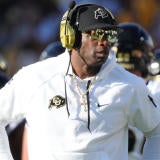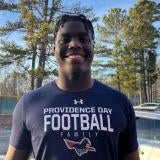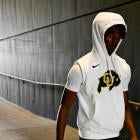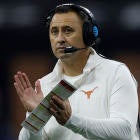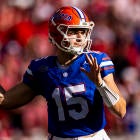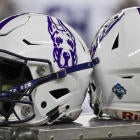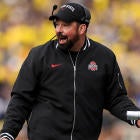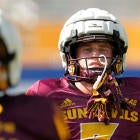A federal judge on Friday set the stage for the Ed O’Bannon antitrust trial to occur as scheduled on June 9.
U.S. District Judge Claudia Wilken denied the NCAA’s outstanding motions seeking to delay or redefine the case and kept the scheduled trial date. She also separated the O’Bannon antitrust case from the Sam Keller right-of-publicity case that's mainly focused on videogames and set a March 23, 2015 trial date for the Keller case.
Wilken denied the NCAA’s request to sever all evidence and claims related to videogames from the antitrust case. That means the O’Bannon plaintiffs can use evidence and arguments about the NCAA’s relationship with Electronic Arts and Collegiate Licensing Company over videogames.
“We got everything we wanted from the ruling and that was to stop the efforts by the NCAA of diverting the issue,” said Michael Hausfeld, lead attorney for the O’Bannon plaintiffs.
The NCAA had most recently sought to delay all of next month’s trial until February, citing Seventh Amendment rights due to the overlap of issues in the two trials. That came after the O’Bannon plaintiffs dropped their individual damage claims against the NCAA last week.
The O’Bannon plaintiffs are seeking an injunction that would end the NCAA’s restrictions that prevent college athletes from being paid based on their names, images and likenesses. The case could dramatically alter how college players are compensated moving forward.
Hausfeld said there is always a possibility of a settlement “if sensible people would approach the issue rationally.” When asked if anyone from the NCAA has come close to settlement talks he deems appropriate, Hausfeld said no.
NCAA chief legal officer Donald Remy said in a statement: “Although the plaintiffs’ eleventh-hour change in strategy has denied a jury the opportunity to decide the important issues in the O’Bannon litigation, we are prepared for trial and look forward to presenting our case to the Judge. At the same time, we will continue to prepare for a jury trial in the Keller case that is scheduled for March.”
Hausfeld noted the push this week by Pac-12 presidents calling on their colleagues in the other four major conferences to make significant changes to benefit athletes. The 10-point plan outlined in the Pac-12 letter, which was first reported by The Associated Press, includes making scholarship awards up to the full cost of attendance. The Pac-12 seeks a response by its colleagues by June 4, five days before the O’Bannon trial starts.
“You’re admitting the failings of the system and your responsibility to the legitimate grievances of the athletes,” Hausfeld said. “It is not a satisfactory response to impose a unilaterally dictated reform. That’s not an open market. In order to really address the situation and your deficiencies, there has to be a level playing field between the association, the conferences, the schools and the athletes.”
When asked if he would trust whether NCAA members would even be on the same page for settlement talks, Hausfeld responded: “They obviously don’t trust each other. You have the Pac-12 writing one letter and the head of Boise State writing another.” Boise State president Bob Kustra has vowed to fight NCAA reform efforts that would increase the value of scholarships.
Instead of allowing the courts to dictate the NCAA's future, Hausfeld said what the NCAA and its members "have going for them is the fact there is right now a single entity in the form of a class of all former and current athletes with which they could negotiate.”
Wilken maintained the trial will start June 9 and last up to 15 days. A pretrial conference remains scheduled for May 28.







